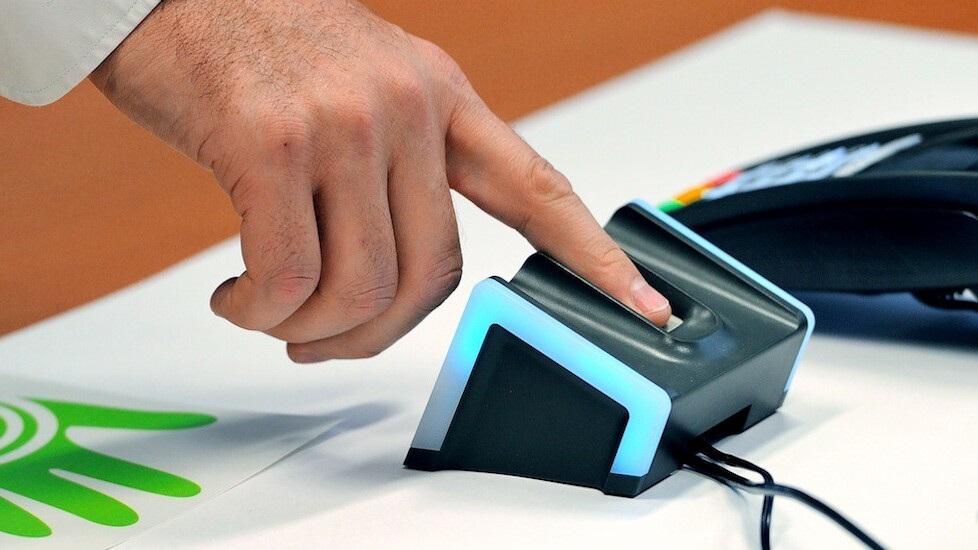
The first time we caught up with Trustev was almost exactly one year ago; it had just secured £300,000 in funding to bring its ‘social fingerprinting’ to market.
In May last year, the platform went live for Trustev customers and then subsequently secured another $3 million in backing – announced at the Dublin Web Summit in October last year.
In essence, what the company does is integrate its social fingerprinting tech into other businesses’ systems. So, that could be a high-end clothes retailer, phone shop, loan application system, or any other situation where verifying the identity of the customer is of paramount importance.
To carry out this verification, it uses social data from services like Facebook, LinkedIn and Twitter to check that people are who they say they are. Site owners can then implement the company’s core identity checking service with just two lines of code.
At Finovate Europe today, the company is showing off the newest string to its bow, its Trusted Retail Decisions module. The system is destined to be used by at least two UK mobile phone retailers in the near future, with trials due to start next week. Alas, the company wasn’t allowed to name them for security reasons, but both have big national retail operations.
What’s the problem with existing systems?
According to the company, millions of pounds of mobile phone fraud is carried out each year. A customer walks into a shop, starts a new contract using bogus identity information and walks out with a new phone. It’s not until, at the very least, a few days later that the network realises that the information isn’t genuine, by which time the fraudster and phone are long gone.
The handsets tend to be sent abroad, and the SIMs remain in this country, sold on and used by others. On average, the spend in this first month on fraudulent SIMs is usually around £1,000, Trustev said. It’s only usually at this point that the company realises something is amiss and puts a block on further spending.
With the Trustev Retail Decision system this shouldn’t be possible. All the normal forms of identification are used by the store, but the customer is then passed a tablet and asked to log into one of their social accounts, like Facebook, Twitter, LinkedIn, etc. CMO of Trustev Donal Cahalane told TNW that virtually any other social service with an open API could be integrated and used to draw information.
The application then scans the social profile data to verify that the customer is indeed who they say they are and that it matches with known information, it then determines an overall confidence score, logs you out of your profile (no data is stored whatsoever – it’s simply used to generate a score) and returns you to the retailer-branded app.
One of the advantages of the Trustev system for its own customers is that it provides a far cheaper way for smaller startups focused on crowd-funding or P2P lending to carry out identity checks than current systems, Cahalane explained:
The legacy [systems] were designed for banking. For when you and me were going to apply for our mortgage, so they can charge £10-£15 for an identity check, but if you’re building an online business in the new financial space, you can’t pay £15 every time you want to verify an identity.
We have what we call ‘a 75 percent’ check – that bit at the start where we weed out most of the nonsense, so on the front end you get rid of all those [unecessary checks] then down the road, if you want to, you can pay for one of the heavier level checks
While the in-store system is the newest part of Trustev’s business, it’s not the main part – that’s largely providing authentication services for online retailers and other businesses. For this it uses a system of continual checks across a website as the customer is using it, but it’s designed to be as unobtrusive as possible.
At the moment, everybody works on the principle of ‘you’re a bad guy, you have to prove to us that we should trust you with our product and services’, so you have to give them all your information. We want to reverse that, we want to assume that you’re a good guy until we find something wrong.
Cahalane went on to explain that the system has smarts too. For example, it might recognize that you’re visiting a site using a masked IP address or through a proxy, but it also has the ability to understand that you might only be doing that because you want to access US Netflix content, rather than for more nefarious purposes.
That alone is not an indication of being a criminal mastermind… Our algorithms re-weight themselves based on the amount of data they get. If they’re getting piles and piles of data, they’ll re-weight themselves in real-time to give the most accurate number [confidence score] that they can.
We want to show people that their digital identities can be used to make their life a bit easier.
You might never see or know it, but if you buy luxury goods or big-ticket tech items online, or live in the UK and are going to be upgrading your phone in the near future, you could be using Trustev’s social fingerprinting to make sure you are who you say you are.
Featured Image Credit – Getty Images
Get the TNW newsletter
Get the most important tech news in your inbox each week.






